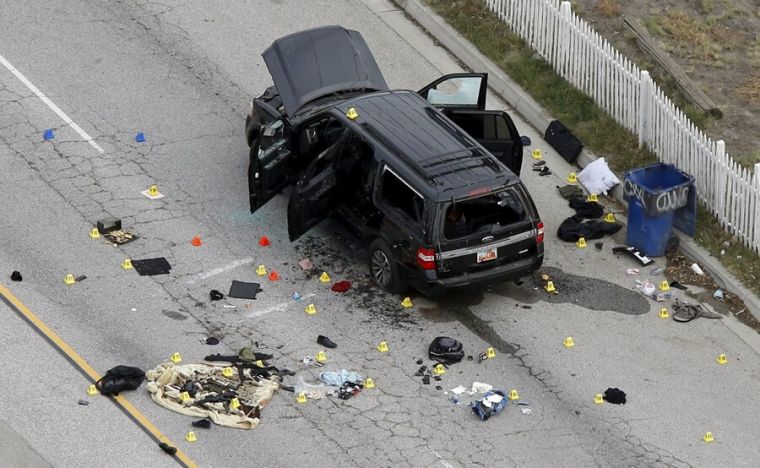Stopping terror attacks in U.S. now a 'mission impossible' after California massacre, experts say

The fight to stop terrorism in the United States has now become an "impossible" task following the attack launched by a Muslim militant couple in San Bernardino, California that killed 14 people and wounded 21 others, a former CIA officer said.
Former CIA case officer Patrick Skinner pointed out that the San Bernardino carnage highlighted the daunting task of foiling terror attacks done at a smaller scale and by individuals not previously identified as terrorist threats, like San Bernardino shooters Syed Rizwan Farook and his wife Tashfeen Malik.
"The current [counter-terrorism] structure is very effective against larger attacks," Skinner, who also previously worked as an Air Marshall and U.S. Capitol police officer, told ABC News.
"To expect any [counter-terrorism] programme to pivot and become a foresight machine — it's like a Tom Cruise in 'Minority Report' -- it's impossible," he added.
U.S. federal authorities have been waging a counter-terrorism campaign by tracking international terror plots by tracing the money trail and global chatter. But this may not be sufficient anymore to stop terrorists from conducting strikes in the U.S. with the example set by the San Bernardino terrorists, Skinner said.
The burden of stopping these home-grown terrorists now fall on local law enforcement agencies, he said.
For his part, former New York City Police Commissioner Ray Kelly called the San Bernardino attack a "game changer" in how law enforcement is going to have to evaluate threats moving forward.
"The biggest takeaway is potentially it can happen anywhere," Kelly also told ABC News.
The former police officer also suggested that local authorities should "get closer to the federal government and the federal stream of information and at least have some sort of component in the department."
Steve Gomez, also a former intelligence officer who was able to work with the Los Angeles Police District, meanwhile stressed the importance of public vigilance and participation in thwarting terror plots in localities.
"Law enforcement's vulnerability is not necessarily with their ability to respond and investigate a threat right away—they do that and they do that very well," Gomez said in an ABC News report.
"The vulnerability is the technology, it's putting it on the FBI's radar so they can then respond and evaluate quickly," he added.











